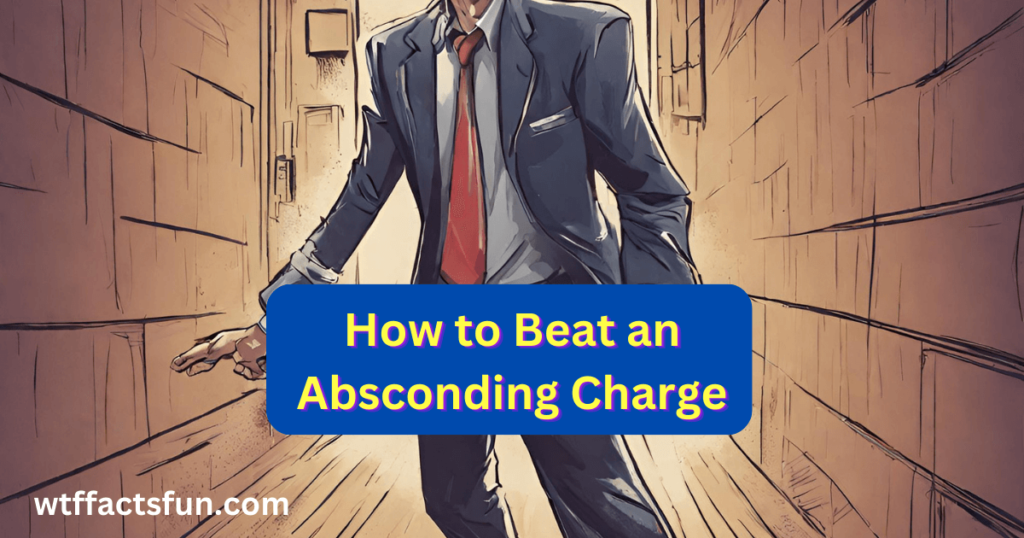
Table of Contents
How to Beat an Absconding Charge
How to Beat an Absconding Charge: Facing an absconding charge can be a challenging legal situation, as it implies an intentional evasion of legal proceedings. Whether due to a misunderstanding, fear, or other circumstances, it’s crucial to approach this situation with a strategic legal defense. In this article, we’ll explore various strategies to effectively address and potentially beat an absconding charge.
- Consulting with a Criminal Defense Attorney: The first and most crucial step when confronted with an absconding charge is to consult with an experienced criminal defense attorney. A professional with expertise in criminal law can assess the specifics of your case, understand the circumstances surrounding the charge, and guide you through the legal process.
- Understanding the Charge: It’s important to have a clear understanding of the absconding charge against you. Determine the specific legal provisions under which you are charged, and gather all relevant documents and evidence related to the case. Understanding the nature of the charge will help you and your attorney formulate an effective defense strategy.
- Valid Reasons for Absence: If there were valid reasons for your absence, ensure that these are well-documented and presented to the court. This may include medical emergencies, family crises, or other circumstances that can justify your temporary non-appearance. Providing evidence of these reasons can strengthen your defense.
- Voluntary Surrender: In some cases, voluntarily surrendering to the authorities can demonstrate your willingness to cooperate with legal proceedings. Consult with your attorney to determine the most appropriate time and manner for surrender, ensuring that it aligns with your overall defense strategy.
- Proving Lack of Intent: Absconding charges often hinge on the element of intent. If you can demonstrate that your absence was not deliberate but rather a result of circumstances beyond your control, it may weaken the prosecution’s case. Your attorney can help build a compelling argument in this regard.
- Negotiating with Prosecutors: Your defense attorney may engage in negotiations with the prosecutors to explore the possibility of a resolution without a full trial. This could involve plea bargains or alternative sentencing arrangements that mitigate the severity of the charges.
- Presenting Alibi Witnesses: If applicable, presenting alibi witnesses who can attest to your whereabouts during the alleged period of absconding can be a powerful defense strategy. The credibility of these witnesses and the consistency of their statements are crucial factors.
- Challenging the Evidence: Challenge the prosecution’s evidence by scrutinizing the collection process and ensuring that it meets legal standards. Any procedural errors or violations could weaken the prosecution’s case.
- Demonstrating Changed Circumstances: If your absence was due to specific circumstances that have since changed, such as resolving financial issues or addressing personal problems, demonstrating this positive change may contribute to a more favorable legal outcome.
Conclusion:
Successfully beating an absconding charge requires a strategic and comprehensive approach. Working closely with an experienced criminal defense attorney, understanding the charge, presenting compelling evidence, and exploring negotiation options are all integral parts of mounting a strong defense. Remember, every case is unique, so tailor these strategies to fit the specifics of your situation, and always seek professional legal advice to navigate the complexities of the legal system.
Read also:
A Comprehensive Guide on How to Clean Melin Hat
How to Hang a Cowboy Hat: A Step-by-Step Guide